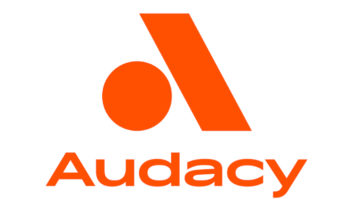
iHeartMedia’s filing of voluntary Chapter 11 bankruptcy last month raises questions about what a successful planned reorganization — pending stakeholder approval — could look like for this country’s largest radio broadcast group. Despite the positive spin by iHeartMedia leadership, it’s a complicated process and potential potholes do exist, experts say.
We do know the proceeding will guided by the United States Bankruptcy Court for the Southern District of Texas in Houston where lots of motions and filings are populating the court docket every day.
Radio World asked Jeffrey Tarkenton, an attorney in the bankruptcy and restructuring group at Womble Bond Dickinson (US) LLP, about what iHeartMedia is going through and the possible outcomes to its reorganization.
Radio World: What are the best practices for iHeartMedia and its operations at this point? Is it business as usual or could there be some cost-cutting?
Jeffrey Tarkenton: The broadcaster can continue to operate in the ordinary course while it reorganizes in bankruptcy, and cost cutting is not necessarily required. The purpose of iHeartMedia’s reorganization is to convert much of its debt to equity and fix the balance sheet. The broadcaster says the deal will reduce its debt by about $10 billion. That’s substantial. The terms of the restructuring will be subject to approval by the Bankruptcy Court.
RW: What are the possible outcomes for iHeartMedia?
Tarkenton: There are three main potential outcomes. First, the company successfully reorganizes through the confirmation of a Chapter 11 plan of reorganization and exits bankruptcy and operates in the ordinary course of business. Macy’s department store chain is a good example of that outcome. Second, the company cannot continue to operate its business, ceases operations and sells off its assets. The liquidation of the assets may be followed by, or assisted by, the confirmation of a Chapter 11 plan of liquidation. Circuit City is an example of that outcome. Third, the company’s case can be converted to a Chapter 7 case in which a trustee is appointed to liquidate the assets, and the debtor company ceases operations. That outcome is not typical for large corporations.
RW: What’s the role of the bankruptcy judge and could he ultimately tell iHeartMedia to sell off some properties?
Tarkenton: Bankruptcy judges are federal judges whose duties include managing the cases that are assigned to them, ruling on motions filed in those cases, overseeing trials of matters that arise in those cases and deciding whether or not to confirm Chapter 11 plans. Typically, they cannot, of their own volition, require a debtor to sell assets, and they do not act as arbiters in the cases that are assigned to them. If iHeartMedia wants to sell some assets, then it typically will need to file a motion with the bankruptcy court requesting authorization to do so. The bankruptcy judge does not act as an arbiter, but he will rule on any motions filed by dissatisfied stakeholders and creditors or by the debtor.
RW: What are a few potential complications in iHeartMedia’s proceeding?
Tarkenton: Financial complications involve the debtor company failing to meet its projections. Legal complications can exist where a minority group of creditors finds a legal basis to block confirmation of iHeartMedia’s Chapter 11 plan.
RW: What’s the criteria for iHeartMedia to emerge from the Chapter 11 process?
Tarkenton: The debtor company, or in some cases, creditors or a creditors’ committee where the debtor has lost the exclusive right to file a plan, decides when to file a Chapter 11 plan. For the court to approve the plan, generally the plan must be approved by each class of creditors whose claims have been impaired. There is a provision where the court can confirm (“cram down”) a plan without all classes of creditors voting for a plan provided, among other things, that the creditors are treated fairly and equitably.












